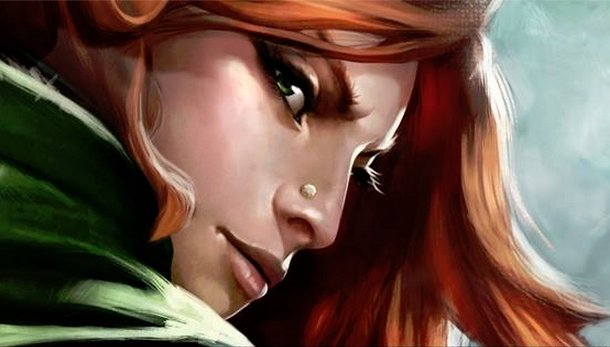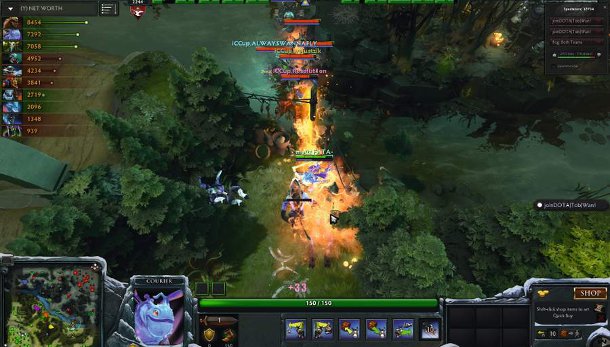Hero's Journey: we visit Valve to get an inside look at the development of Dota 2

This article was originally published in issue 254 of PC Gamer UK .
As the Radiant ancient explodes, so does the room. A 55-minute game of Dota 2 has just ended in a razor's-edge victory for the Dire. The kill count is close to even, and both teams' bases have been levelled by multiple near miss shots at the throne. Four Radiant players are in the Dire base when the match ends, but they can't outrun the damage being done to their ancient by a single player, the undead horseman Abaddon, whose attacks are augmented by the three Divine Rapiers in his inventory.
"The reward for learning to play is learning to see."
If you're not a Dota player, that probably doesn't mean very much to you. If you are, you'll understand that a man with three rapiers is an improbable, precarious and powerful product of the forces of order and chaos at work in every Dota match.
The outcome's sheer unlikelihood is why the room – a regular office, lights dimmed, non-players working in silence – has suddenly burst into a spontaneous round of cheers. Chairs are kicked back, headphones are torn off. For anyone with the requisite understanding, it's a spectacular upset. The human mind's ability to glean a narrative of chance and triumph from the movements of a little internet wizard is the key to understanding Dota 2's popularity. Moments like this are why hundreds of thousands of people, myself included, invest so much time in the game: the reward for learning to play is learning to see.

Afterwards I'm told by one of the players that the match ranks in the top five percent of games they've ever played. He should know: he's one of Dota 2's animators. The room we're in is the office at Valve's Bellevue headquarters where Dota 2 is made. When you think of Valve, you probably don't think of whooping developers trading high-fives over desks, but it's an image that helps to explain why the biggest company in PC gaming chose to remake a Warcraft III mod.
I spent a single day in Bellevue, and we talked Dota over lunch, talked Dota in the corridors, talked Dota around PCs where programmers worked while streaming a professional match on a second monitor. We talked Dota while playing Dota and eventually even managed to talk Dota in something resembling a formal interview. I've met plenty of developers who were enthusiastic about their work, but I've met very few whose enthusiasm has the egoless quality of fandom, who talk as if they're not responsible for the game they're praising.
"We interviewed [IceFrog] and were a little confused about why we hadn't hired him before."
In part, of course, that's the case. The original fan-made Defence of the Ancients was simply a post-work diversion for a number of Valve employees. That set the company on the road to Dota 2, but it was meeting the mod's steward, IceFrog, that prompted their first steps.
The biggest gaming news, reviews and hardware deals
Keep up to date with the most important stories and the best deals, as picked by the PC Gamer team.
“The only way we make any decisions is based on the people who work here,” explains Erik Johnson, whose company bio lists him as one of Valve's 'business development authorities'. “We interviewed [IceFrog] and were a little confused about why we hadn't hired him before.”
“In many ways it follows in the footsteps of Team Fortress, Portal, Counter-Strike,” says Doug Lombardi, vice president of marketing (a role that grants him that rarest of things at Valve: a job title.) “Somebody had this great nut of an idea and Valve took an interest and offered them the resources to take it to the next level. The only difference is the genre.”
Johnson interjects: “Also the appeal of making a game that wasn't first person! Making a game in a fantasy world as opposed to science fiction – that was kind of exciting, too.”
Joining in 2011, Chris made his start with PC Gamer turning beautiful trees into magazines, first as a writer and later as deputy editor. Once PCG's reluctant MMO champion , his discovery of Dota 2 in 2012 led him to much darker, stranger places. In 2015, Chris became the editor of PC Gamer Pro, overseeing our online coverage of competitive gaming and esports. He left in 2017, and can be now found making games and recording the Crate & Crowbar podcast.


